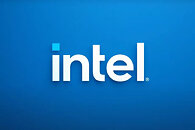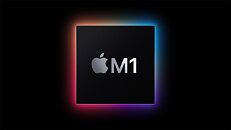Raevenlord
News Editor
- Joined
- Aug 12, 2016
- Messages
- 3,755 (1.18/day)
- Location
- Portugal
| System Name | The Ryzening |
|---|---|
| Processor | AMD Ryzen 9 5900X |
| Motherboard | MSI X570 MAG TOMAHAWK |
| Cooling | Lian Li Galahad 360mm AIO |
| Memory | 32 GB G.Skill Trident Z F4-3733 (4x 8 GB) |
| Video Card(s) | Gigabyte RTX 3070 Ti |
| Storage | Boot: Transcend MTE220S 2TB, Kintson A2000 1TB, Seagate Firewolf Pro 14 TB |
| Display(s) | Acer Nitro VG270UP (1440p 144 Hz IPS) |
| Case | Lian Li O11DX Dynamic White |
| Audio Device(s) | iFi Audio Zen DAC |
| Power Supply | Seasonic Focus+ 750 W |
| Mouse | Cooler Master Masterkeys Lite L |
| Keyboard | Cooler Master Masterkeys Lite L |
| Software | Windows 10 x64 |
Intel's future CEO Pat Gelsinger, who supersedes current CEO Bob Swan come February 15th, has reportedly compared Intel with Apple's efforts, in wake of that company's decision to leave the Intel ecosystem in favor of in-house designed ARM CPUs. As Apple M1-powered devices hit reviewers' tables, the opinions mostly went one-sided in favor of Apple's decision, clamoring for that particular CPU design to be only lightly short of a computing miracle, considering the amount of computing power provided at that chip's TDP, and running circles around Apple's previous Intel implementations.
According to The Oregonian, a local newspaper from (you guessed it) Oregon where Intel has a strong branch presence, Intel held an all-hands meeting of its Oregon workforce, attended by future Intel CEO Pat Gelsinger, who is quoted as having remarked that "We [Intel] have to deliver better products to the PC ecosystem than any possible thing that a lifestyle company in Cupertino makes. We have to be that good, in the future." Considering how Apple's M1 has raised the world's attention to the ARM architecture as a competitor with strong enough arguments to face the x86 ecosystem (as if ARM powering the world's current fastest supercomputer wasn't a strong enough argument), that seems like a strong yet adequate statement. We'll see how Intel fares with its Alder lake CPUs, which essentially bring ARM's design philosophy of an heterogeneous CPU with both high-performance and high-efficiency cores to the x86 table.




View at TechPowerUp Main Site
According to The Oregonian, a local newspaper from (you guessed it) Oregon where Intel has a strong branch presence, Intel held an all-hands meeting of its Oregon workforce, attended by future Intel CEO Pat Gelsinger, who is quoted as having remarked that "We [Intel] have to deliver better products to the PC ecosystem than any possible thing that a lifestyle company in Cupertino makes. We have to be that good, in the future." Considering how Apple's M1 has raised the world's attention to the ARM architecture as a competitor with strong enough arguments to face the x86 ecosystem (as if ARM powering the world's current fastest supercomputer wasn't a strong enough argument), that seems like a strong yet adequate statement. We'll see how Intel fares with its Alder lake CPUs, which essentially bring ARM's design philosophy of an heterogeneous CPU with both high-performance and high-efficiency cores to the x86 table.




View at TechPowerUp Main Site








